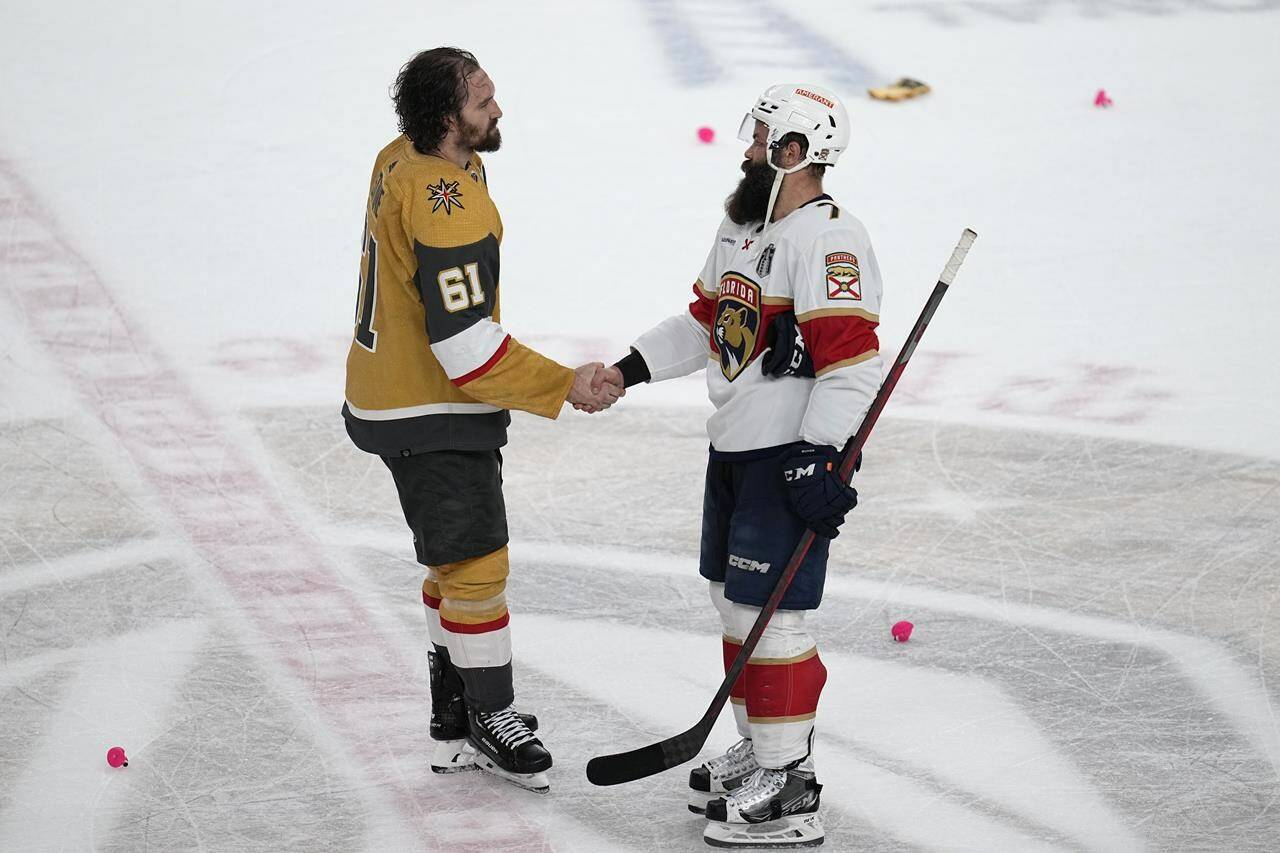A former National Hockey League player who now coaches in Newfoundland and Labrador says he disagrees with a recent decision by the province’s amateur hockey governing body to ban team handshakes after games.
Hockey NL said in a note posted Thursday to its website that it was ending post-game handshakes.
“We have had some issues with handshakes following games that have led to suspensions for players and coaches,” Gonzo Bennett, chair of Hockey NL’s minor council executive committee, wrote in the memo.
But Darren Langdon, coach of the Deer Lake Red Wings, a senior men’s team, said the post-game handshake is a key builder of sportsmanship, especially for younger players.
“When you’re young, you should learn how to respect the other teammates,” Langdon said in an interview Thursday. “You can compete and play hard against someone, but at the end of the day, it’s a game to have fun, and you shake their hand and go on about your business.”
Langdon played in the NHL from 1994 to 2006, for the New York Rangers, Carolina Hurricanes, Vancouver Canucks, Montreal Canadiens and New Jersey Devils.
The post on Hockey NL’s website said that instead of handshakes, officials will direct both teams to their dressing rooms at the conclusion of each game. Before matches begin, the visiting team will skate by the home team’s bench and offer a glove tap or handshake to wish their opponents a good game.
The change will be in effect for all games after the Christmas break, Bennett’s note said.
The mid-season memo is addressed to all minor hockey associations and leagues and dated Wednesday. An official with Hockey NL was not immediately available to answer questions.
The move comes as coach, parent and player conduct in amateur hockey is under increasing scrutiny. Last month, RCMP in Nova Scotia charged a coach for allegedly assaulting a referee during a game involving nine- and 10-year-olds. And amateur hockey associations across Canada have elected to put green armbands on teenage referees so parents and coaches think twice before hurling abuse at them.
It’s a backdrop that may have influenced Hockey NL’s decision, Langdon said, adding that he’s witnessed a few arguments in the handshake lineup — even some coaches or players refusing to shake the hand of someone on the other team.
“I know where they’re coming from, too,” Langdon said about Hockey NL. If coaches “get into it,” he said, the kids will see it.
But banning handshakes outright is too drastic, and it removes an essential moment in the game during which players are able to leave their differences on the ice, he said.
“When I used to play in the NHL, I’d fight with someone and after the game we might go for a beer together,” Langdon said. “Instead of that, in minor hockey, you’re shaking hands and saying, ‘good game.’”
READ ALSO: Experts puzzled by Hockey Canada’s ‘minimum attire’ rule in dressing rooms

